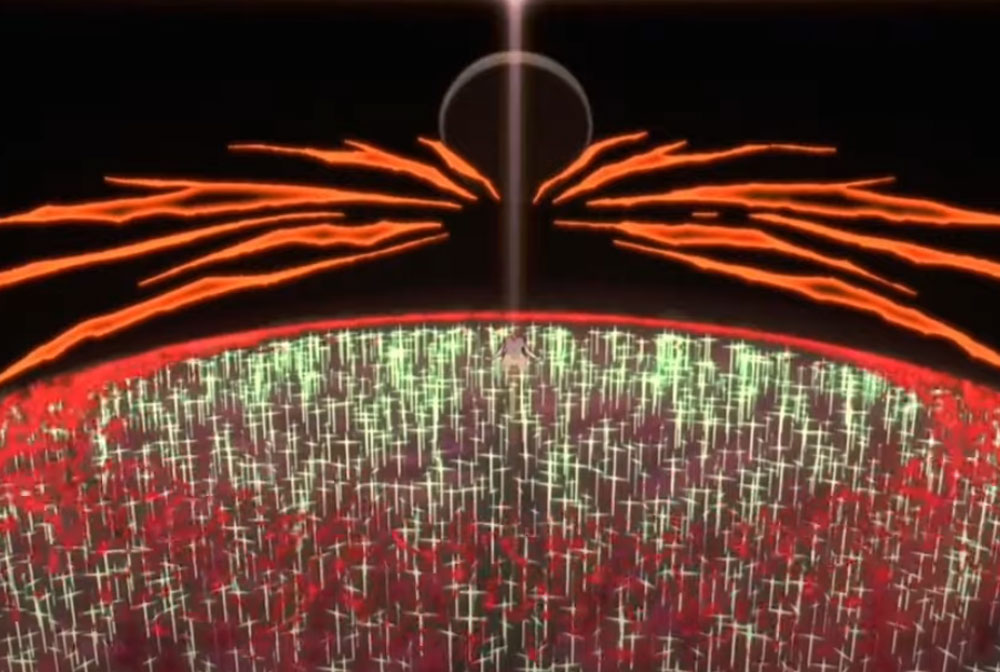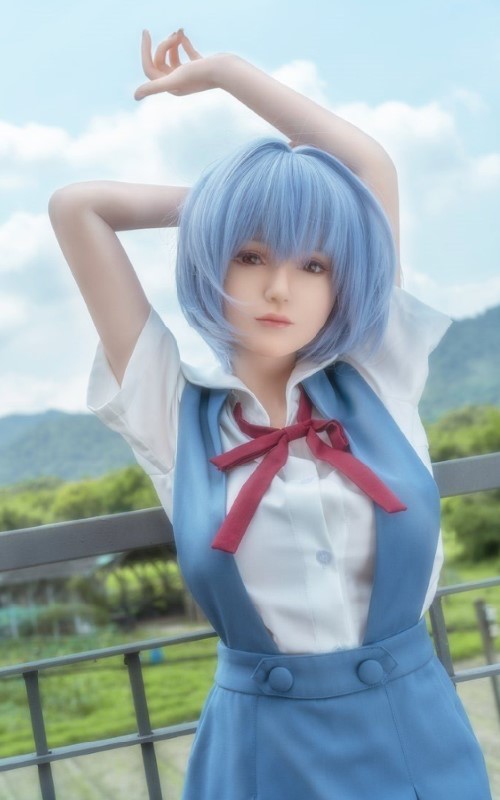Notice: Function WP_Interactivity_API::_process_directives was called incorrectly. Interactivity directives failed to process in "" due to a missing "P" end tag. Please see Debugging in WordPress for more information. (This message was added in version 6.6.0.) in /var/www/vhosts/otakudolls.com/httpdocs/wp-includes/functions.php on line 6121
The Neon Genesis Evangelion saga is much more than just an anime; it is a cultural masterpiece that marked a before-and-after in the entertainment industry, both in Japan and worldwide. Created by Hideaki Anno and produced by Gainax in 1995, Evangelion not only innovated storytelling but also challenged traditional standards of the mecha genre, exploring deep psychological, philosophical, and religious themes.
Below, we will explore the history of the franchise, its main characters, various adaptations, and its impact on otaku culture.
The Story of Neon Genesis Evangelion
The story of Evangelion begins in a post-apocalyptic world, fifteen years after a global cataclysm known as the Second Impact. In this universe, humanity is threatened by mysterious entities called Angels, and the paramilitary organization NERV develops enormous biomechanical robots called Evangelion (or EVA) to combat them.
The protagonist, Shinji Ikari, is a teenager recruited by his estranged father, Gendo Ikari, leader of NERV, to pilot the EVA-01. Throughout the series, Shinji and his fellow pilots, Rei Ayanami and Asuka Langley Soryu, face not only the Angels but also their own inner traumas and conflicts.
Although it appears to be an action-packed sci-fi anime, Evangelion delves deeply into themes such as loneliness, the search for identity, human connection, and sacrifice, making it unique within its genre.
The Main Characters
1. Shinji Ikari
Shinji is the main protagonist of the series. Known for his introverted personality and tendency to avoid conflict, Shinji constantly struggles with his desire for acceptance while bearing the heavy burden of piloting the EVA-01 to protect humanity. He is one of the most complex and human characters in the saga.
2. Rei Ayanami
Rei is the enigmatic and emotionally distant pilot of the EVA-00. With a mysterious connection to NERV’s experiments and Gendo Ikari, her story is surrounded by secrets that gradually unfold throughout the series. Her cold and reserved demeanor contrasts with her emotional evolution over time.
Silicon Doll Of Ayanami Rei
Ayanami Rei, the girl chosen to pilot Eva Unit-00.
![]()
Rei Ayanami, a central character in Neon Genesis Evangelion, is a quiet and enigmatic figure chosen to pilot Evangelion Unit-00. Her pale appearance and reserved demeanor reflect her mysterious origins as a clone created from Yui Ikari’s DNA and part of Lilith’s soul.
PURCHASE with full GUARANTEES
3. Asuka Langley Soryu
Asuka, the pilot of EVA-02, is a proud, extroverted, and highly competitive young woman. While she appears strong and confident, her backstory reveals deep emotional traumas and a desperate need for validation. Her relationship with Shinji is one of the series’ most tense and significant dynamics.
4. Misato Katsuragi
Misato is NERV’s tactical commander and a maternal (though unconventional) figure to Shinji and the other pilots. Despite her carefree appearance, her past and personal motivations make her a pivotal character in the narrative.
5. Gendo Ikari
The distant and cold director of NERV, Gendo, has hidden goals that go beyond saving humanity. His tense relationship with Shinji and his obsession with a secret plan known as the Human Instrumentality Project are central to the plot.

The Adaptations of Evangelion
The Evangelion franchise has grown significantly since its debut in 1995, expanding into movies, manga, video games, and merchandise. Here’s a look at the major installments:
1. Neon Genesis Evangelion (1995-1996)
The original 26-episode series revolutionized anime with its deep narrative, complex characters, and innovative combination of action, psychological drama, and religious symbolism.
2. The End of Evangelion (1997)
This film acts as a reinterpretation of the final episodes of the original series, offering an alternate, darker, and emotionally impactful ending. It is widely considered a masterpiece of animated cinema.
3. Rebuild of Evangelion (2007-2021)
A series of four films that reimagine and expand the original story with new characters, elements, and a completely different conclusion. The films are:
- Evangelion: 1.0 You Are (Not) Alone (2007)
- Evangelion: 2.0 You Can (Not) Advance (2009)
- Evangelion: 3.0 You Can (Not) Redo (2012)
- Evangelion: 3.0+1.0 Thrice Upon a Time (2021)
These films combine modern animation technology with Hideaki Anno’s unique vision, appealing to both new viewers and veteran fans.
Evangelion’s Fandom
The cultural impact of Evangelion is immense. The series not only revitalized the mecha genre but also attracted a more mature audience thanks to its narrative complexity and psychological themes. This has created a global fan base that remains active to this day.
1. Merchandising
From collectible figures of the EVAs and pilots to clothing, posters, and life-sized replicas of the characters, Evangelion merchandise is a phenomenon. Detailed figures of Rei, Asuka, and Shinji are especially popular among collectors.
2. Video Games
The saga has inspired numerous video games, ranging from adaptations of the series to fighting games and visual novels that expand the Evangelion universe.
3. Conventions and Tributes
At events like Comiket in Japan and Comic-Con in the West, Evangelion remains a recurring theme among cosplayers, artists, and content creators. Additionally, its iconic songs, such as the opening “A Cruel Angel’s Thesis”, are widely recognized even by those who haven’t watched the series.
The Legacy of Evangelion
Neon Genesis Evangelion is a saga that has left an indelible mark on the history of anime and pop culture. Its combination of action, psychological introspection, and profound symbolism has inspired generations of creators and fans.
Today, more than 25 years after its debut, Evangelion remains a work that invites analysis, reflection, and emotional connection. Whether through its original series, its films, or its life-sized collectible figures, the Evangelion universe continues to captivate those who dare to explore it.
One of the most remarkable ways for fans to connect with the Evangelion universe is through life-sized figures of its iconic characters. These highly detailed creations bring characters like Rei Ayanami, Asuka Langley Soryu, and Shinji Ikari to life with stunning realism, capturing their signature poses, expressions, and even the intricate designs of their plug suits. From Rei’s calm and mysterious demeanor to Asuka’s confident and fiery stance, each figure is a masterpiece of craftsmanship. Perfect for collectors and passionate fans, these life-sized figures are more than mere decorations—they are immersive tributes to the emotional depth and visual brilliance that define the Evangelion saga.

